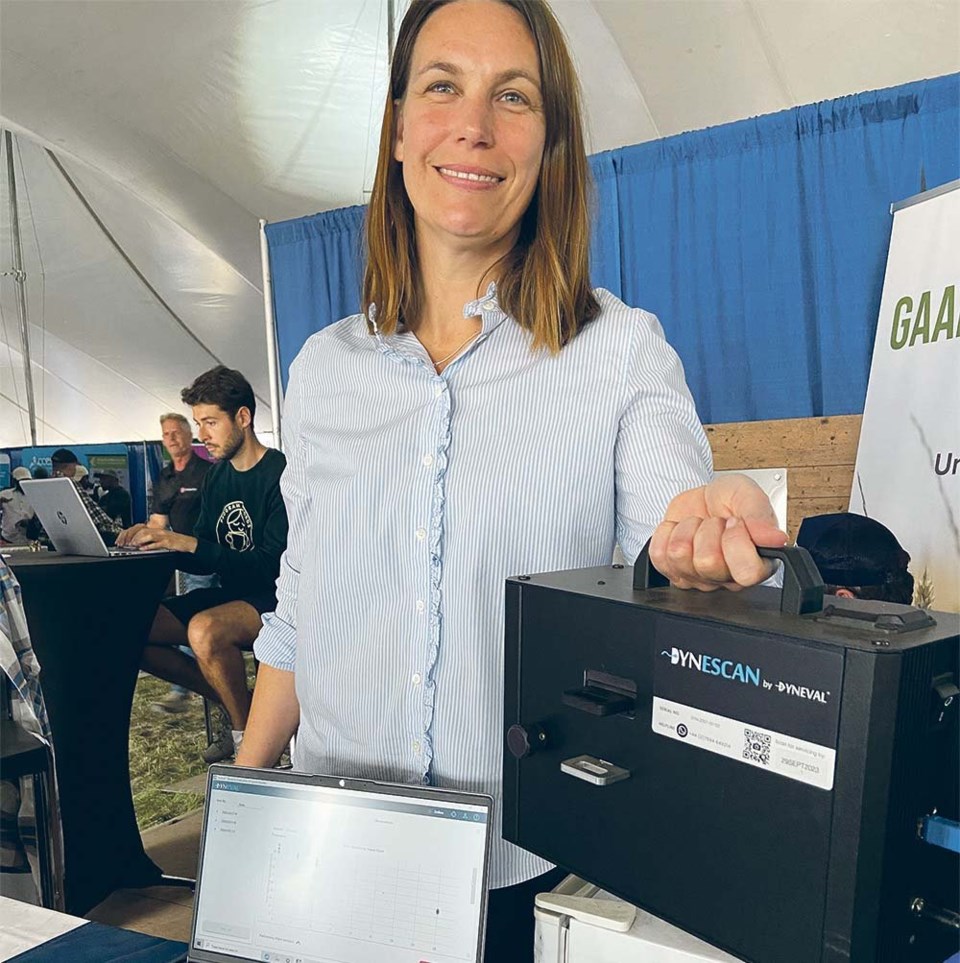WESTERN PRODUCER — Slow-swimming bull sperm will have no place to hide.
A Scottish company, Dyneval, has created a new semen analyzer that measures a wider range of concentrations of semen than previous testing methods. This will allow veterinarians, beef and dairy producers to have more control over semen quality.
The Dynescanl analyzer is also highly portable, making it more accessible to large farms, veterinarians and other livestock service providers.
“We say to the industry, don’t treat all the semen the same. You spend a lot of money making sure you look after the cows in fertility and heat detection. In the same way, you need to be looking at the lifetime of semen,” says Tiffany Wood, chief executive officer and co-founder of Dyneval.
She was at the Ag In Motion farm show recently as part of the Global Agri-Food Advancement Partnership, a privately operated agri-food investment incubator looking for cutting edge technologies from early and rapid growth companies seeking to improve efficiency, sustainability and profitability in the global food and agriculture sector..
Co-founder Dr. Vincent Martinez developed a novel technique for measuring the motility of micro-organisms using intensity fluctuations in video.
Other technologies use algorithms that track cells frame to frame, which means they don’t track at as high or low concentrations.
Bull semen motility varies dramatically, especially given how much it is processed and how long.
Sexed semen has become popular as a way to choose with high probability whether a breeding will result in male or female offspring, but the fertility of sexed semen isn’t as high because it has been processed.
Wood says the industry is learning more about insemination timing for sexed semen. An example of sexed semen she evaluated with the machine showed that motility started to decline after 90 minutes. That means that sample would need to be used quickly.
If that is understood using the Dyneval testing, then that bull’s sexed semen can be managed differently.
Many beef ranchers have a bull’s semen evaluated before breeding season. The Dyneval system would allow that to be done closer to the farm.
On a dairy farm, Wood says the system would allow a farmer to evaluate the quality of the semen they have received or have in storage, resulting in better insemination timing.
She says calculations for a 900-cow herd she visited recently showed that the $17,000 machine would pay for itself within a year in improved insemination timing and conception rate.
“In the U.K., a number of veterinarians are using it, helping with pre-breeding parameters on dairy farms.”
There are also applications along the dairy semen supply chain for more easily checking quality, she says.
The unit is available directly from Dyneval, but the company is in Canada looking for distribution partners.
The system currently measures bull and sheep semen, with equine and pigs coming soon.
This story has been updated to correct the description of GAAP.




